Unlock Your Entrepreneurial Instincts and Live the Real American Dream
Boss Brain empowers aspiring entrepreneurs with a proven system to unlock their entrepreneurial instincts so they can leave traditional employment forever...the real American Dream.
Ended
Despite all the current hype about the gig economy, the widening gap between entrepreneurship and employment in America is the largest in history. Entrepreneurship has declined virtually every year since the mid-1940's. Ironically, studies show that America's entrepreneurial spirit is still alive—70% of the workforce recently indicated that they would prefer to be self-employed. That's 100 million people that are thinking it, just not doing it. For most, the American Dream will always be just a dream.
Based on twenty years of experience, five years of research, and dozens of scientific studies, Boss Brain reveals how this modern enigma is rooted in evolutionary psychology. What was a useful survival trick 20,000 years ago is now the reason 100 million would-be entrepreneurs never even attempt self-employment.
With a foreword by three-time NYT bestselling author and world-renowned behavioral psychologist, Dr. Daniel Crosby, Boss Brain:
● Exposes why most people feel they were meant for entrepreneurship and empowers readers with the skills to unlock their innate entrepreneurial instincts.
● Reveals the self-deceptions and psychological pitfalls that trap aspiring entrepreneurs in traditional employment.
● Empowers future entrepreneurs of every age to overcome the physical and mental barriers that stand between them and self-employment.
● Provides readers with a step-by-step mental framework to help them escape their 9 to 5 and never be an employee again.
Chapter 1 Get a Good job
KEY POINTS
The conflict between your instinctive optimism and your disdain for uncertainty is the source of the entrepreneurship gap.
Even paradise can become a prison.
Societal expectations are walls that limit your ability to maximize
your individual potential.
To achieve predictability, you are forced to sacrifice opportunity.
QUESTIONS TO ASK
Does this action bring me one step closer to my goals, or am I doing this because it makes life more predictable?
Have I built walls around my current conditions which limit me to only incremental advancements?
How can I create my vision of the distant future, even if life in the near-term is less certain?
Has my need for certainty limited my willingness or ability to learn and develop?
Chapter 2 Be Yourself
KEY POINTS
It is not enough to envision a better future for yourself, you also have to trust in your own ability to make it so. You have to trust in your self-efficacy.
True freedom to explore the limits of your potential only comes when you separate who you are from what you do and vice versa.
You are an entrepreneur, first and foremost. When, why, and how you act on those instincts is secondary.
Don’t allow who you think you are to limit your willingness to seize opportunity.
Neither your self-perception nor your environment has the power to change what you are at a primal level.
QUESTIONS TO ASK
Do I really trust in myself?
Do I want to be my own boss, or would I rather construct a life that is consistent with what society expects from me?
Do I make life decisions based on my own desires or based on my relative status within society?
Am I humble enough to give up on a failing project, learn from those lessons, and continue elsewhere?
Am I a product of my environment? Or is my environment a product of me?
Chapter 3 Follow Your Dreams
KEY POINTS
Optimism and self-efficacy are not enough. To reshape your future, you must follow a different path and take unique action.
Society sends conflicting messages of both individualism and assimilation.
The American Dream has been distorted into a cultural narrative of consumerism that authors the life story of most Americans.
Regardless of utility, everything that is customary was fabricated.
The current education system leaves students ill-prepared to deal with the inevitable challenges of entrepreneurship.
A college degree does not increase the likelihood of becoming a business owner.
Within the context of education, ever-increasing levels of specialization that are built on a broad foundation are the key to entrepreneurial success.
QUESTIONS TO ASK
Am I willing to build my own road in order to reach my preferred destination?
Am I working daily to become an expert in my field?
How can I constantly expand the diversity of my baseline knowledge?
What is my personal competitive advantage? What skills and knowledge do I bring to bear that others do not?
Chapter 4 The First Primary Instinct — Belief
WAYS TO NURTURE YOUR INHERENT OPTIMISM
Reject the need for absolute certainty and instead look for ways to maximize every opportunity.
Just like your ancestors, think of relative comfort as a steppingstone, not a destination.
Remember that predictable adequacy will not be adequate forever. Building walls around your present circumstances will inevitably limit your future rewards.
Think of the future as a tangible product of your optimism. It isn’t just a dream; it’s a self-fulfilling prophecy.
WAYS TO NURTURE YOUR SELF-EFFICACY
Practice recognizing what drives and motivates you beyond monetary gain.
Seriously vet opportunities even when they seem out of reach or are inconsistent with who you think you are.
Strip away your external identity and perception of self. Eliminating that lens will change your entire perspective on what you are and are not capable of.
Trust in your adaptability and resourcefulness. That is what turns your optimism into action.
WAYS TO CONVERT YOUR OPTIMISM AND SELF- EFFICACY INTO ACTION
Consciously question the legitimacy of cautionary tales about business ownership, especially from people who do not own their own business.
Study personal finance and develop a realistic budget, including a short and long-term plan. This costs you nothing and is an easy first step.
Embrace the fact that college is essential for the most part. However, the broad, core curriculum is only half the battle.
You must become an expert in your field. Know your preferred industry better than anyone else: its history, its current status, and its future.
Chapter 5 It’s not my fault
KEY POINTS
Anything that you think controls you only does so because you allow it.
Feeling empowered and having a sense of control positively affects your health and satisfaction with life.
We pretend that we don’t have control to excuse our lack of effort and to maintain a positive perception of ourselves.
We choose our obligations and then blame them for obli- gating us.
Diligence and resilience increase proficiency which increases the likelihood of success.
QUESTIONS TO ASK
What and who have I given power over me and how might I recapture that control?
Do I believe I control the outcome of unforeseen challenges or do I relent as if fate is in control?
Am I willing to accept total and singular responsibility for a failure to act and my current conditions?
Would I rather pretend I don’t have control to avoid taking responsibility?
Chapter 6 I could if I wanted to
KEY POINTS
Working within a process is the only way to accurately measure the results of your effort, revise your plans accordingly, and get better.
Praising inherent ability reduces the willingness to expend effort and weakens your determination and resilience.
Praising effort and strategy increases mental resilience and increases your determination.
Motivation is sustained by reflection on growth and improvement, not on outcome.
Natural ability is relative. Effort is not.
QUESTIONS TO ASK
Do I consider myself to be inherently talented, and how does that affect my work ethic?
Have I nurtured and developed my talents, or do I avoid improvement because I fear failure?
Do I choose the easiest paths because they complement my self- image?
Have I clearly defined a process that allows me to measure my results objectively and get better while advancing toward my eventual goal?
Chapter 7 It’s not worth the effort
KEY POINTS
Diligence is the difference between temporary failure and inevitable success.
Effort is inherently costly but can also be intrinsically rewarding. • Pretending not to want that which is challenging to obtain is just another self-deception that hides a fear of failure.
People find more value in tasks and items that require lots of effort by them or others.
Focusing on temporary rewards compromises the quality and duration of effort.
QUESTIONS TO ASK
Am I willing to set my ego aside and focus on the process of developing my abilities?
Would I prefer quick and easy short-term rewards or extended efforts that reshape my future?
Do I feel pulled more toward actual excellence or the rewards of compliance?
Am I focused on the process or the prize?
Chapter 8 The Second Primary Instinct — Accountability
WAYS TO CONSCIOUSLY MAXIMIZE CONTROL
Accept full responsibility for your current circumstances and for shaping your own future. When you reject the idea that other people or things have control over your life, you give yourself permission to change.
Assess all your so-called obligations and thoughtfully consider if they can be outsourced or eliminated. Don’t use them as an excuse for inaction.
Set hard limits on the time you spend maintaining the status quo. Don’t allow Parkinson’s Law to expand your obligations and take over your life.
Don’t think of the past as a crystal ball to predict the future. You can rewrite your life story to explain the present, but what you do today is the only thing that will shape the future.
Find your redemption story. Use it to garner the support of everyone and everything around you.
WAYS TO CONSCIOUSLY DEVELOP A MEANINGFUL PROCESS
Tackle small steps with blinders on, and do not be discouraged by the enormity of your long-term goal.
Find the story that is written by your relentless effort, not your natural ability. Other people will support and assist if your process redeems you in some way.
Set a time to get to work regardless of your level of motivation. You do this every day for your job; why can’t you do it for yourself?
Utilize existing third-party systems that automate feedback on your effort so you can adjust and revise.
Create positive reinforcements for yourself: small celebrations to acknowledge extreme effort. These are not external temporary rewards offered by others.
WAYS TO CONSCIOUSLY NURTURE DILIGENCE
Systemize everything so that it can then be objectively measured and optimized.
Acknowledge that you cannot measure your skills or test your limits without attempting difficult tasks. Choosing the easy route merely confirms the perception you have of your innate ability.
Look for, find, and document the intrinsic value in every effort. Not only is it a good way to reference how far you’ve come, but it will also force you to acknowledge the lessons learned along the way.
Recognize that temporary rewards undermine meaningful effort and treat them accordingly.
Chapter 9 I Don’t Have Time
KEY POINTS
Your environment is the single biggest threat to where and how you apply your attention.
Flaunting status is the quickest way to lose it.
The same spirit that inspires Americans to dream of self- employment also causes us to waste time on menial tasks.
Tech advances undermine effort and productivity. Time cannot be saved.
There is a physical and mental difference between being busy and being productive.
QUESTIONS TO ASK
How can I outsource menial tasks that do not add value to my legacy? Do I use menial tasks as an excuse for inaction?
Does my screen time add tangible value to life or contribute to my long-term plan?
Do I make use of time afforded to me by tech advancements or do I simply reduce my effort proportionally?
Am I proactive or reactive? Do I plan my days or deal with them as they come?
Do I know the balance of each day that remains at my discretion?
Chapter 10 One day I will
KEY POINTS
All your resources should be directed toward your ultimate goal, not toward temporary rewards.
Simplicity enhances utility.
Outsourcing time-consuming tasks leads to higher levels of productivity and greater focus.
Squandering wealth will result in poverty of both time and money.
The benefits of materialism are temporary. The costs are permanent.
Possessions spawn obligations. What you own ends up owning you.
QUESTIONS TO ASK
Do the things I own provide more than fleeting pleasure or temporary benefit?
Would I trade the things I own for a thriving business?
If I had to leave home forever, what do I own that is worth carrying with me?
Is the majority of my time spent on maintenance of my existing conditions or on growth toward my goals?
Chapter 11 I don’t have the money
KEY POINTS
Massive financial obligations create a poverty of time. Unlike money, time can never be saved.
Massive debt hinders an entrepreneur’s agility and ability to respond to ever changing markets.
Poverty of wealth will inevitably result in poverty of time.
Credit availability primes our brain to spend more.
There are virtually limitless funding resources available to aspiring American entrepreneurs.
Money spent on tech and other modern luxuries rarely yields a measurable return.
Having honesty and transparency regarding financial matters takes incredible courage.
QUESTIONS TO ASK
Do I have a budget that includes saving startup capital for my future business?
What would I lose by selling everything I own? What would I gain?
Can I find meaning in sacrifice, knowing that it brings me closer to my goals?
Do I really lack capital, or do I just need more discipline?
Chapter 12 The Third Primary Instinct — Focus
WAYS TO ENGINEER YOUR ENVIRONMENT
Find pleasure in sacrifice and avoid temporary rewards. In today’s world, delaying gratification is a rare ability. Like everything else, the rarer it becomes, the more valuable it will be.
Recognize the cascading effect of small and large purchases that could immobilize you mentally and physically. The unintended consequences of possessions are often hidden in plain sight.
Find and utilize every available tool to automate your life. And don’t subsequently lower your efforts once they are in place. People who want to be movie stars move to L.A. Those who want to be country music stars move to Nashville. Live in the future you want to create.
WAYS TO MAXIMIZE YOUR RESOURCES
Assess the value of everything you own, not in dollars, but as it relates to your entrepreneurial endeavors. If it doesn’t meaningfully contribute, then it is a waste of resources.
Consolidate all the fragmented aspects of your life. Divided resources are less valuable than their collective sum.
Look for second and third order resources. These are the things that are not under your control, but are available to you nevertheless.
Shield everything that is at your disposal from interference and encroachment. When you allow others to steal away portions, even unintentionally, you are literally giving away your future.
WAYS TO GENERATE DISCRETIONARY TIME
Calculate and leverage recent tech. Are you more productive or more complacent because of it? Redirect the time it yields or lose it forever. Spend dollars to save hours, not hours to save dollars.
Calculate your income per hour and assess whether you would pay someone that amount for the time it takes to complete your weekend to-do list. If not, then change your circumstances because you are undervaluing your time.
Commit to using credit wisely or not at all.
Research and get to know all the funding options that are available to you. These second and third order resources can free up huge chunks of your time.
Have the courage to examine your current finances honestly.
Remember that most purchases do not increase the likelihood of reaching your goals.
Chapter 13 It wasn’t meant to be
KEY POINTS
Each one of us was born with inherent, genius-level ingenuity.
When you are preoccupied with survival, your ability to innovate is limited.
Society is biased against creative ideas despite touting an explicit preference for them.
Each step of the entrepreneurial process is itself a redemption story.
The need to know everything will stop you from doing anything.
QUESTIONS TO ASK
Do I dismiss ingenious ideas because they are uncertain?
How can I nurture my own ingenuity?
Am I willing to attempt limitless trials and learn from the errors?
Am I creating a legacy, or is blind ambition wasting my potential?
Chapter 14 It’s impossible
KEY POINTS
Adaptability is the catalyst for evolution.
Deeming an outcome of unknown odds as impossible inherently limits adaptability and increases change aversion.
The vast majority of entrepreneurs emerge from the comfort of the Goldilocks Zone.
In entrepreneurship, the outcome of past events plays virtually no role in the odds of future outcomes.
As comfort and predictability increase, so too does fear of entrepreneurship.
Risk and uncertainty are not the same thing.
QUESTIONS TO ASK
How can I move my comfort level into the Goldilocks Zone and invite measured risk?
Has my quality of life satiated my desire for self-employment, or has it made me temporarily change-averse?
Will I regret never placing a bet on myself or my abilities?
How can I change my life to better embrace creativity and change?
Chapter 15 Grow Up
KEY POINTS
Happiness is not a destination that you journey toward. It is the by-product of the freedom to zealously pursue a meaningful life.
Society’s definition of success is what our forefathers called imaginary happiness.
There was joy in pursuing the original American Dream regardless of your individual results. Our ancestors found joy in the challenge, not in the reward.
A meaningful life can only be judged in hindsight, but the freedom to pursue it yields happiness in real-time.
QUESTIONS TO ASK
Have I exercised my right to pursue my own definition of happiness?
What is the first thing I need to do to step off the hedonic treadmill?
What does my idea of a legacy look like?
Can I withstand the judgment of others when I embark on self-employment?
Chapter 16 The Fourth Primary Instinct — Creativity
WAYS TO NURTURE YOUR INGENUITY
Leverage your network. The best ideas often come from people who are not so close to a project that they can’t see it objectively.
Consciously separate blind ambition from your ultimate goal. Climbing a ladder that someone else built does not require divergent thinking...entrepreneurship does.
Create detailed plans for short-term survival so your mind is free to innovate long-term solutions.
Take the first step without the need to know where the second step will lead. Mother Nature gave you what you need to figure it out along the way.
WAYS TO LEVERAGE YOUR ADAPTABILITY
Test ideas in small ways with clearly defined risk. Revise and test again until the odds are measurable.
Calculate the tangible resources needed to move yourself into the Goldilocks Zone. Once you are there, adaptability isn’t a burden.
Resisting massive changes that are inevitable is a recipe for extinction. Dealing with disruptive ideas doesn’t make you adaptable—it reveals your innate adaptability.
WAYS TO BE ZEALOUS
Accept that happiness is not a destination. It is the by-product of exercising the freedom to pursue meaning and legacy.
Incorporate your short- and long-term goals into everything you do. Every action should shape your future in some way.
Remember that others will dismiss the creative solutions you implement to achieve your goals. When people who love being traditionally employed start questioning what you are doing and why then you are probably on the right track.
Treat each challenge like a scavenger hunt. Zeal comes from knowing that the solution you are looking for is out there somewhere; you just have to find it.
Chapter 17 The Cycle of Entrepreneurship
Belief is the first Primary Instinct in the Cycle of Entrepreneurship
Accountability is the second Primary Instinct in the Cycle of Entrepreneurship
Focus is the third Primary Instinct in the Cycle of Entrepreneurship
Creativity is the fourth Primary Instinct in the Cycle of Entrepreneurship
More than 10 million Mid-level Managers are now unemployed or underemployed because their roles were eliminated during the remote-work COVID crisis. These folks reside precisely within the goldilocks zone for entrepreneurship and are presently and actively seeking ways to eliminate their future dependence on traditional employment. The book will attract four large groups of readers across every ethnicity, occupation, religion, income level, political affiliation and location. 1) 100 million Americans who want to be self-employed. 2) 20 million college students who will soon enter a very limited labor market and who are already more entrepreneurial-minded than previous generations. 3) 70 million Americans who recently retired or will retire in the next 10 years and need to subsidize their underfunded retirement savings. 4) 15 million Americans who are currently self-employed and who want to enhance their entrepreneurial mindset.
“Entrepreneurs can change the world. For proof, look no further than the United States. Our nation was built by entrepreneurs, it’s in our DNA. Between 1892 and 1954, 12 million immigrants left safe and mature countries to immigrate through Ellis Island. Three generations later, the United Sates is now the safe and mature country losing its entrepreneurial edge. BOSS BRAIN is the spark we need to ignite an entrepreneurial revolution. Talented, innovative, corporate stars with dreams of building something of your own, READ THIS BOOK! The USA needs you." --Dwight Cooper, Entrepreneur, Venture Capitalist, Chief Executive Officer - Hueman
“Tra has knocked it out of the park with this book. As a business owner and CPA, I deal with entrepreneurs of all shapes and sizes. I know firsthand the challenges, frustrations and fears that go along with starting, growing and managing a business. Tra does a masterful job of laying out the mindset needed for a hopeful entrepreneur to become a successful entrepreneur. BOSS BRAIN is a must read for anyone who knows in their heart that they were meant to be the master of their own fate.” --Chris Patterson, 2nd Generation Entrepreneur, Chief Executive Officer - Patterson Financial
“If you are thinking of starting a business, or more importantly, if you are thinking of being an entrepreneur, read this book first. I wish I could have read BOSS BRAIN in my 20s to prepare my brain for entrepreneurship. If 2020 has taught us anything, it is that change is continual and what we need is to adapt and adopt—this book ensures we use our Boss Brains to do just that.” --David King, 3rd Generation Entrepreneur, Veteran, Chief Executive Officer - Red Level Group

Tra Williams is a speaker, entrepreneur, and nationally recognized expert in entrepreneurship and small business strategy. During his 25-year career, he has sat at the helm of two international brands and has guided thousands of entrepreneurs on their journey to self-employment.
Tra has been featured or quoted in dozens of publications, including Forbes, Bloomberg, and Franchise Times. He has made it his mission to rescue 1 million entrepreneurs from traditional employment and reverse the decline of American Entrepreneurship.
When not running one of his businesses, speaking, or writing about entrepreneurship, Tra lobbies to protect small businesses in Washington D.C. He lives and works out of his home office in sunny St. Augustine, Florida.
2,000 copies • Partial manuscript • Looking for general nonfiction, history, politics, rural living, cooking, humor, and children’s books.
Skyhorse Publishing, one of the fastest-growing independent book publishers in the United States, was launched in September 2006 by Tony Lyons, former president and publisher of the Lyons Press. It has had forty-three titles on the New York Times bestseller list over the course of its ten-year history. With our fifteen imprints, including recently launched Hot Books and Racehorse, Skyhorse has a continually growing catalog of titles that mixes forgotten classics with new material that has yet to be brought to the reading public. We are always looking for books that will connect with and entertain readers.

250 copies • Partial manuscript.
Sunbury Press, Inc., headquartered in Mechanicsburg, PA is a publisher of hardcover, trade paperback, and eBooks featuring established and emerging authors in many categories. Sunbury's books are sold through leading booksellers worldwide. We are a traditional royalty-paying trade publisher.
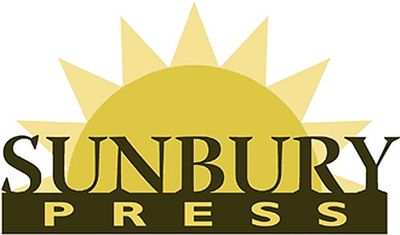
Amplify Publishing is a leading hybrid publishing company best known for its work with thought leaders and industry experts across various industries. With comprehensive editorial, design, marketing, production, and distribution services, our authors have the support of an experienced publishing team while still retaining full approval and intellectual property rights.
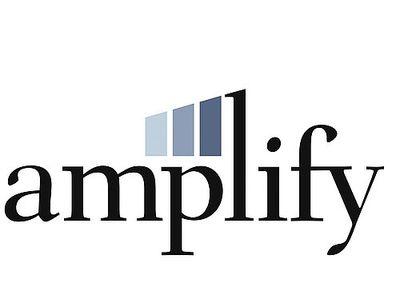
250 copies • Partial manuscript.
Ballast Books is a full-service hybrid publisher that handles all aspects of book creation, design, publishing, marketing, distribution, and platform building. We help our authors sell more books, secure more keynotes, do more consulting, earn more customers, and book more media appearances.
We want to work with the best of the best: Former Special Operations Forces, CEOs, big thinkers, industry-leading experts. Top-performing people with experiences worth sharing and skills that translate into a larger message and goal.
We've seen particular success with military memoirs, but we've also recently hired a children's book specialist, so we run the spectrum of genres. We're a small but growing team and take pride in dedicating more time and energy to all our authors than traditional publishers.
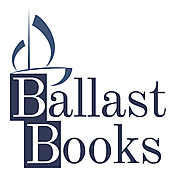
Greenleaf Book Group is a publisher and distributor specializing in developing independent authors and thought leaders. We designed our publishing model to support the independent author and to make it possible for writers to retain the rights to their work and still compete with the major publishing houses. We have the capability to take your book idea through full project development and production all the way to bookstore shelves. Our award-winning team works with you to create an exceptional book and design a custom-built strategy to ensure its success in the retail market.
Thousands of projects later and with over 50 New York Times and Wall Street Journal bestsellers, our award-winning editorial and design, robust marketing, and expert distribution capabilities have led to partnerships with some of the most influential thought leaders and independent publishers worldwide. Greenleaf’s hybrid publishing model is uniquely positioned to offer the benefits of both traditional and self-publishing. We provide you with unmatched publishing and distribution services; you keep creative control, intellectual property, and most of the royalties.
When we accept a title for publication or distribution, we assign it to one of our imprints. Though production work is the same for all imprints, our imprint recommendation determines our distribution and marketing strategies based on genre, author platform, and demand-generation plan. Our world-class imprints are Greenleaf Book Group Press (our flagship imprint), River Grove Books (our digital-first imprint), Fast Company Press (our imprint partnership with Fast Company Magazine), An Inc. Original (our print partnership with Inc. Magazine), and BrainTrust Ink (our imprint partnership with BrainTrust).
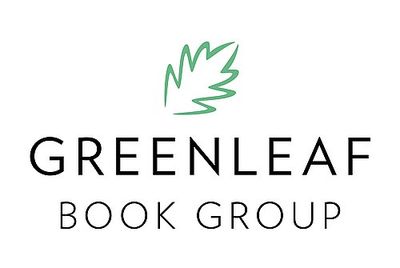
250 copies • Partial manuscript.
Hybrid Global Publishing is a full service Hybrid Publishing Company dedicated to helping authors, speakers, and entrepreneurs get their message out by writing and publishing a book. We offer developmental editing, publishing, distribution, and marketing services for independent authors who are interested in speaking on stage, becoming more visible in the media, and establishing more credibility. The team has a combined 80 years of experience in publishing and has held editorial, management and marketing positions at major publishing houses, including The Free Press, Crown, Random House, and Avon.
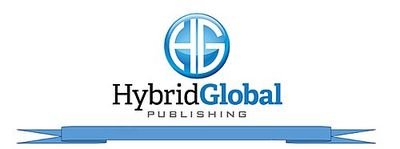
Mascot Books is a full-service hybrid publisher dedicated to helping authors at all stages of their publishing journey create a high-quality printed or digital book that matches their vision. With comprehensive editorial, design, marketing, production, and distribution services, our authors have the support of an experienced publishing team while still retaining one of the highest royalty percentages in the business.

250 copies • Completed manuscript.
SOOP is a small virtual publishing company headquartered in Madison, Wisconsin, with a core team based in the US and additional contractors around the world. SOOP currently focuses on curating a small number of volumes for publication each year to enable its team to dedicate a great deal of time to working with its authors directly - not just on the manuscript, but also on platform-building and promotion.
Dear Author,
You worked hard to write your manuscript, and you know that expert assistance is needed to ready it for the market. But perhaps you didn’t realize that working with a publisher is no longer necessary—especially publishers who charge fees to produce your book upfront and "share" more of your revenue whenever a book is sold.
1106 Design is an author services company that has served over 4,000 authors since 2001. We offer all the editorial and design services you’d expect from a publisher, transforming your manuscript into a polished book. But here's the difference: we help you secure print-on-demand printing and worldwide distribution in YOUR name. This means you'll earn several dollars more for every book sold instead of a meager “royalty” and never lose control of your book or your book files.
We understand that your book is not just a passion project but also a potential source of income. No two books or authors are alike. That's why we'll customize a package of services tailored to your needs at affordable prices, starting at $5,555. And here's the best part: after this one-time investment, every penny of revenue from book sales is deposited directly to your bank account, never to ours first.
If this sounds like a better way to publish your book, I invite you to browse our services, design samples, no-surprises pricing, outstanding customer reviews, and educational articles at https://1106design.com. You can download a free PDF of my book, "Publish Like the Pros: A Brief Guide to Quality Self-Publishing and an Insider's Look at a Misunderstood Industry," and request a free, no-obligation consultation.
1106 Design is rated A+ by the Better Business Bureau. We are a “Highly Recommended Expert” at IngramSpark.com and rated "Excellent" at Alli, The Alliance for Independent Authors, at SelfPublishingAdvice.org. Alli's "watchdog list" of the best and worst publishing services companies is an invaluable resource.
How can we serve you today?
Sincerely,
Michele DeFilippo, owner

Looking for all types of books, including fiction, children's books, health, memoir, business books, and cookbooks
Bright Communications LLC is a woman- and veteran-owned custom publisher in Hellertown, PA. Founding CEO Jennifer Bright is a Book Doula, whose passion is helping authors bring their books to life. Our team of expert editorial, design, and marketing pros help authors go from idea to completed books and retain 100% of the rights to their work. We also offer four custom publishing packages.
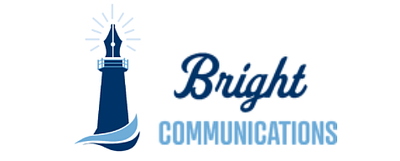
100 copies • Completed manuscript.
eBooks2go, Inc. was founded in 2011 to provide the missing link for all your publishing needs. Our end-to-end solutions provide the guidance and support that enable publishers and independent authors to pursue their passions. To date, we have helped more than 1,000 authors and 250 publishers worldwide. We offer an array of simple and affordable solutions to assist self-publishing authors at every stage of the book publishing process. Our comprehensive service offering includes editing, print and eBook production, book marketing, cover designs, ISBN registration, and even website designs. We are a single source for all of your publishing needs.

250 copies • Completed manuscript.
At Finn-Phyllis Press, our goal is simple: help you tell your story in a powerfully vulnerable way, publish it so that it can sit next to any New York Times bestseller in terms of quality, and support you as you reach the readers who need to hear what you (and you alone) have to say.
We believe that every story matters.
We believe that the smallest moments of connection create the widest reaching ripple effect of change.
We believe that book publishing doesn't have to be overwhelming, feel high-pressure, or take years to complete.
We believe that authors deserve to earn 100% of the profits---it's your story, after all!
We believe that 100% of the rights to your story are your own (and should remain that way).
We believe that while most stories aren't, in and of themselves, completely unique, no one else has your exact perspective or experience, and that is your superpower.
We believe in partnerships. This isn't our first rodeo (although, in full transparency, we've never been to an actual rodeo), and it is our privilege to guide our authors every step of the way. We are proud of our no-tears-or-panic-attacks policy.
We believe in the bells and whistles that help our clients increase their impact---and leave the ones that don't in the metaphorical slush pile.
We don't have an actual slush pile.
Are you with us so far? If so, let's talk about what's next...
We are passionate about powerfully vulnerable storytelling, inspiring backstories, and yet-to-be-discovered voices. We believe that everyone has a powerful story and that those stories are meant to impact the entire world, one reader at a time.
Run by 5X author Elizabeth Lyons, Finn-Phyllis Press was established in 2004 and has been actively publishing impactful stories since 2016.
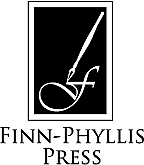
Grammar Factory is known for helping entrepreneurs, business leaders, and subject matter experts become first-time authors of world-class nonfiction books that build their authority and grow their business.
Over the past 8 years, we’ve helped more than 200 business owners write and publish books that grow their business.
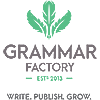
CHAPTER 1
GET A GOOD JOB
“Risk is the tariff paid to leave the shores of predictable misery.”
—Amar Lavani, CEO Standard Hotels
Right now, 100 million Americans want to quit their jobs and start their own businesses. But while 70% of the American workforce wants to be self-employed, less than 7% is. Despite all the current talk about the gig economy, the widening gap between entrepreneurship and employment in America is the largest in history. Each year, more and more Americans want to start their own business. Yet each year, fewer and fewer do.
With very few exceptions, self-employment rates in America have decreased every year since the baby boom. Just twenty-five years ago, entrepreneurs made up more than 12% of the workforce. Today, it is little more than half that. And self-employment rates aren’t just low by American standards, they now rank among the lowest of any country in the world. But the most striking aspect of the entrepreneurship gap is that it crosses all races, genders, education levels, and socio-economic barriers.
For most, the American Dream will always be just a dream.
Fortunately, even though business creation continues to trend downward, Americans haven’t lost their infamous entrepreneurial spirit. Millennial and Gen Z workers have strong self-employment inclinations. As they entered the workforce, the percentage of would-be entrepreneurs in America has trended upward and now ranks third in the world behind Poland and Portugal. Russia, Denmark, and Norway are at the bottom of the entrepreneurial spirit list—only about 30% of their citizens want to be self-employed. In spite of their apparent lack of entrepreneurial spirit, all three currently boast higher levels of actual entrepreneurship than the United States.
Many would-be entrepreneurs blame their inaction on a lack of resources. But America has the most extensive system for small business funding and support in the world. The U.S.A. has more small business loan programs, grants, scholarships, educational courses, and business development organizations than the rest of the world combined. In fact, many countries with much higher levels of self-employment offer just a fraction of the support provided in America.
The problem is not a lack of desire or opportunity.
Economists and politicians love to point at one statistic or another and blame some aspect of society for the reduction in startups. But the only thing that could stop 100 million Americans from doing what they want is 100 million Americans. Our entrepreneurial instincts are losing a battle against a tenacious and invisible enemy: ourselves. More and more, we are not choosing to explore the limits of our potential. Instead, we are choosing predictable misery over the misery of uncertainty.
OPTIMISM AND ENTREPRENEURSHIP
Humans instinctively avoid taking steps that we expect will yield a negative result. When you do something, you do it because you think good outcomes will follow. Whether it’s buying a house, selling a home, or changing jobs, you do it because you believe that action will produce a positive effect. Today we call it optimism—the belief that events in the future will be better than the present and the past.
Every action, no matter how small, was born of optimism. Even small, seemingly inconsequential decisions are optimistic. You eat healthy because you believe that doing so will make you feel and look better. You choose your route to work because you believe it is better or faster than the others. You look at the weather before getting dressed because dressing appropriately will make your day better. Better and better and better. We are wired to seek opportunities to improve our circumstances and our lives.
Imagine the first humans ever to build a raft and sail beyond the horizon. They had no idea if other lands even existed. But they weren’t just optimistic, they also genuinely believed in their ability to figure out how to handle whatever challenges arose. With limited food and water, death was the consequence of being wrong. That is the power of having an optimistic vision of the future and trust in your own abilities. That is the power of your Boss Brain.
When early humans emerged on the savannas of Africa, they were just another animal attempting to find their place in the food chain. Their cunning took them across continents and oceans. However, it was not math or the power of deduction that motivated them to explore. It was the capacity to envision a better life somewhere other than where they were. And in that life, they would flourish, thrive, and reproduce without worry or concern.
Psychologists initially rejected the idea that humans are instinctively optimistic. But Tali Sharot, author of The Optimism Bias, has proven that humans are inherently optimistic. Psychologists have now embraced the critical role optimism played in human development. The ability to envision a better future in a different place or time was crucial. Sharot noted that the bias “protects and inspires us: it keeps us moving... without optimism, our ancestors might never have ventured far from their tribes, and we might all be cave dwellers, still huddled together and dreaming of light and heat.”
And without optimism, we would all be employees.
Studies have even isolated a gene within your DNA that appears to be responsible for your lofty expectations. It was passed to you by your ancestors, who were very likely to be optimistic. How do we know? A study from the Boston University of Medicine recently proved it. They found that optimistic women have a whopping 50% better chance of reaching the age of 85, and men have a 70% better chance of living longer than their pessimistic brothers. These aren’t incremental advantages. The effect optimism has on longevity is monumental. Many studies have verified this, showing a direct relationship between optimism and significantly increased longevity even after adjusting for behavioral factors.
Longer lives means more opportunities to have kids and build support networks through multi-generational communities. The pessimists who lived shorter lives were not afforded those opportunities and, therefore, were less likely to pass on their pessimistic genes. As its effect compounded over time, optimism served as a fundamental element in the rise of humanity.
A vast amount of research also shows that within the context of entrepreneurship, optimists actually enjoy experiencing various forms of adversity. They are motivated by challenges and find difficult situations as an opportunity to explore their potential. Optimists typically rise to face the problems that life presents to them, persisting and remaining engaged in the pursuit of their goals. Conversely, pessimists lack tenacity and persistence and quickly give up when faced with adversity.
Without the unique ability to envision a better future, humans would have quickly given up and settled for a compromised existence. Our optimism inspired action 100,000 years ago, just as it inspires entrepreneurs today. Without optimism, there is no inner calling, no deep-seated desire to build the best life possible. Despite our past negative experiences, we dream of the future as a better place, and we are genetically hardwired to seek it out.
CERTAINTY AND EMPLOYMENT
One of the most well-established tenets of psychology is the brain’s bias toward consistency and predictability. The mind wants its expectations met. It needs consistent outcomes above all else and to maintain a continuum of beliefs, attitudes, and behaviors. Predictable results may require more work and offer fewer rewards, but they also require less thought. When predictable options are available, certainty overcomes quality—predictability overcomes optimism.
The Boss Brain of ancient man enjoyed predictability, but on a massive scale. The cycles of the seasons and migrations of animals were predictable. Each day brought new challenges and lacked the monotony of the modern world because early man did not attempt to tame his environment.
For employees, modern life doesn’t flow within a natural order. Society revolves around the workday, and the workday doesn’t change with the seasons. Without an overarching seasonal strategy, annual migrations are now compressed into daily routines. Predictability is maintained by the minute at a micro level. Our lives are now guided by the clock, not the calendar.
The simplest and quickest way to achieve minute-by-minute consistency is to accept a role from within the options that society has made readily available. The most natural path to certainty is to get a job. That is also how we initially ceded control to our need for certainty some 12,000 years ago. We became an agrarian society and inserted ourselves into what would eventually become the monotony of the modern workday.
You might say that is just how the world works, but it didn’t work that way when your Boss Brain evolved, nor did it work that way for 99.94% of our existence. Technology advanced and societies became more complicated, but human instinct and the desire for independence has not changed. All of this began on the very first farm, and it continues today.
THE WALLS OF ADEQUACY
Of all the farms that sprang up twelve centuries ago, one grew faster than any other and became the first settlement of more than 2000 people. That village would eventually become the longest permanently inhabited settlement in the world. Ideally positioned on fertile plains between protective mountains and a wide river, it was a paradise of sun and soil. The land around the village held the magical combination of natural defenses, fertile soil, abundant sunshine, and fresh water.
Generation after generation expanded the site’s natural ability to support massive amounts of food. Its inhabitants recognized their wealth of resources and feared losing them. So, they erected enormous walls around their city. Eventually, all the inhabitants began to fear the unknown perils that lay outside the walls of what they called Jericho.
More than ten thousand years after its birth, the walled city of Jericho was as it had always been. It was a beautiful and crowded oasis filled with fearful occupants, some of whom had never been outside the city walls. The population grew from two thousand to ten thousand. Each year, everyone was forced to subsist on less and less. Everyone in the city was bound by the walls of Jericho.
However, Jericho’s walls were nothing more than an inconvenience for invaders. Indeed, the city was conquered six times before the Roman Empire arrived in 70AD. Despite being the oldest continuously inhabited city in the world, Jericho was not even their intended prize. The Roman army was there to use Jericho’s resources as part of their supply line to invade and conquer Jerusalem.
The fear of losing what little they had forced Jericho to play a role in someone else’s conquest. They helped make someone else’s optimistic vision of the future a reality, not their own. Like frontline employees of a huge multinational corporation, whatever mediocre existence that they scraped out was determined by those that they served. They no longer controlled their own destiny. They became cogs in the wheels of an empire.
THE CAGE OF COMFORT
Modern entrepreneurs face the same decision that the citizens of Jericho faced. They could live on the relative certainty of limited provisions, or they could explore the limits of their potential outside the walls of society. Each year, the costs of survival grew. Yet their productivity was bound by the barriers they built around themselves.
Here is the most telling example of how the desire for certainty limits long-term potential: Jericho was founded 5,000 years before Rome. Jericho had a comfortable head start, yet it could not withstand pressures from the ever advancing outside world. The citizens of Jericho found comfort in predictable adequacy, which made them complacent and halted their advancement.
Yale researchers have revealed how predictability creates complacency and limits the brain’s natural ability to learn and grow. In their initial experiment, monkeys chose between pressing a red button that provided rewards 80% of the time and a green button that paid off 20% of the time. The monkeys quickly learned that the red button paid rewards more frequently and stopped hitting the green button.
Then the scientists switched things up a bit. In the second experiment, the red button paid out 80 percent of the time. But the green buttons were unpredictable—the frequency and size of the yielded rewards always varied. When the monkeys decided that the green button held no predictability, they abandoned it for the red.
The researchers measured the monkeys’ brain activity while they played with all the buttons. A clear pattern emerged. If the monkeys could predict how often a button paid rewards, brain regions associated with learning shut down. When the monkeys couldn’t anticipate the frequency or size of the treat, their learning centers lit up. However, when the monkeys figured out which buttons were predictable and more profitable, they stopped pressing the other buttons.
Once the brain discerns the easiest way to generate consistent rewards in a given environment, two things happen. First, learning and developing new techniques becomes pointless. And second, you become less likely to test another environment. You stop pressing other buttons and build walls to protect your frequent and consistent reward. Predictability spawns complacency. If you’re not at least a little stressed about the outcome of your efforts, your brain stops learning.
As one of the Yale neuroscientists put it, “Perhaps the most important insight from our study is that the function of the brain as well as the nature of learning is not fixed, but adapts according to the stability of the environment...When you enter a more novel and volatile environment, this might enhance the tendency for the brain to absorb more information.” Uncertainty signals that you’re unsure of your environment or your skills, and your brain’s learning centers kick into overdrive.
Entrepreneurs still live and work within the confines of the metaphorical walls of society. There is no escaping that fact. But entrepreneurs cannot stop learning; they cannot stop pressing other buttons. Consistent rewards may tempt you to build physical and mental walls around your growth. However, once you abandon learning and experimentation, you give control over to whoever or whatever offers the most predictability.
A predictable paycheck represents the limited provisions produced within the walls of employment. It is Jericho’s red button.
MONEY, LEGACY, AND OPTIMISM
In 2018, Bill Gates became the first ever guest editor of Time Magazine. As a philanthropist, humanitarian, and one of the richest people in the world, he could have chosen any number of subjects as the theme for his issue. He chose to focus the entire issue on what he sees as the most important topic for society today: optimism.
Gates admits that it is easy to feel like the world is falling apart. However, the billionaire argues that despite all the terrible tragedies that make the news, the world is better than ever before and is still getting better. Gates says, “I’m not trying to downplay the work that remains. Being an optimist doesn’t mean you ignore tragedy and injustice,” he explains. “It means you’re inspired to look for people making progress on those fronts, and to help spread that progress.” According to Gates, there is a disconnect between reality and society’s pessimistic sentiments.
Gates isn’t alone in his view of the future. A recent study interviewed millionaire and billionaire self-made entrepreneurs to assess their dominant personality traits. More than eight out of 10 of them assessed themselves as optimistic, and 78% ranked themselves as very optimistic. Nearly 85% strongly rejected the statement, “I see myself as more of a pessimist.” Among them, no other personality trait was as prevalent as optimism.
The way the interviewees use the word optimist correlated to self- efficacy or the belief in their abilities to achieve a goal or overcome challenging situations. In their own words, optimism is a kind of resourcefulness, “a result of your own abilities, the network you have cultivated or your intellect, you are always able to identify solutions and to overcome anything.” It doesn’t mean that they naively believe in the inevitability of a happy ending. They understand that unforeseen challenges will always arise. Still, they have confidence in themselves and their ability to prevail over the hurdles that lie between them and their goal.
The same theme reveals itself across time—belief in themselves and a willingness to explore their abilities. The interviewees were all self- made men and women. They didn’t inherit their wealth, and they were not naively optimistic. But they did turn their inherent optimism into action. They envisioned a better future for themselves and their families and made that vision a reality.
There is little difference between those who crossed continents in search of a better life and those who dare to define the role they play in the modern world. Their optimistic Boss Brain inspired action. The accumulation of wealth was merely a by-product of building a satisfactory legacy, not the legacy itself.
THE SOURCE OF THE ENTREPRENEURSHIP GAP
The ability to envision a future of bountiful harvests and times of plenty is a powerful motivator. Why risk being eaten by a saber-toothed tiger when you can sit by a fire in your hut with a full belly? And why risk starting a company and being your own boss when you can accept a predictable role and collect a paycheck? The idea itself is simple and linear: stay in one safe, comfortable place and create abundance instead of searching for it. Then and now, that idea produces unintended consequences:
“Rather than heralding a new era of easy living, the Agricultural Revolution left farmers with lives generally more difficult and less satisfying than those of foragers. Hunter-gatherers spent their time in more stimulating and varied ways and were less in danger of starvation and disease. The Agricultural Revolution certainly enlarged the sum total of food at the disposal of humankind, but the extra food did not translate into a better diet or more leisure. Rather, it translated into population explosions and pampered elites. The average farmer worked harder than the average forager and got a worse diet...permanent settlements would be hotbeds for infectious diseases...their bulging granaries would tempt thieves and enemies, compelling them to start building walls and doing guard duty. The Agricultural Revolution was history’s biggest fraud.”
—Yuval Harari, Sapiens
The unintended consequences of farming prevented the better future it attempted to create. With a poor diet, wretched living conditions, disease, and class divisions, it was predictably bad. But predictable, nonetheless.
The bias to hate uncertainty even more than predictably negative consequences is ingrained into the modern brain. The tendency to choose the predictable option, however fraught with misery it may be, battles our optimistic instinct to search for a better future.
It is the modern human enigma: comply with the collective and face a predictable monotonous future that is sometimes ripe with pain and suffering. Or defy societal expectations and face an uncertain future potentially filled with happiness and meaning. The hardwired instincts of the Boss Brain battle the opposing software of the modern brain. The subsequent conflicting emotions yield the turmoil that we all feel as a witness to and participant in today’s society.
Without frontiers to explore and uncharted territories to discover, we have fashioned a cell for ourselves. It might not have visible bars, but it does create mental and physical barriers. This self-made prison is like a merry-go-round that moves only in one direction and always begins and ends in the same place. As nearly all quality of life metrics rise around the globe, jumping off that comfortable merry-go-round is getting harder with each generation.
The inner war between optimism and uncertainty is the source of the entrepreneurship gap.
Battle lines are drawn between what we want and what we have, between predictability and possibility. Each year, more and more American workers become metaphorical casualties in this war, choosing certainty over optimism. They choose consistent adequacy. Then their brain shuts off, and they spend the rest of their lives pressing one button.
WHY DOES THIS MATTER?
The modern world is just an extension of that very first farm. Most employees actually enjoy what their ancestors envisioned—a relatively safe work environment, consistent schedules, and predictable rewards. Modern employment also yields a cache of unintended consequences, but that is not why aspiring entrepreneurs quit their jobs. Their actions are inspired by an optimistic vision of the future, and a belief in their ability to make that vision a reality.
This is why early humans quickly scattered themselves around the globe over difficult terrain and in extreme weather conditions. Nothing was certain. So, they constantly searched for ways to improve their existence. And not just in incremental ways, like warmer clothes or more comfortable beds; they fearlessly embraced massive change and enormous cultural shifts. Always challenging themselves. Never settling for the status quo.
Without optimism our rise would have been concentric and methodical, slowly spiraling outward in safe and predictable ways. But that isn’t what happened. Instead, small bands of our ancestors shot out into the world on aggressive trajectories. Nothing but optimism could have propelled them over mountain ranges and frozen tundra.
Optimism was the spark that lit fire to our entrepreneurial instincts. It was the catalyst that Mother Nature needed to mold us. Optimism empowers us to choose which walls to work within and where to set boundaries. The Boss Brain doesn’t recognize the conflict between optimism and uncertainty because it evolved when there was no certainty. There wasn’t a predictable, consistent option. Belief in a better future and in one’s own ability to make that vision a reality was the only sure thing.
The modern brain has been deceived by the illusion of certainty. It has been bribed to operate within the boundaries that someone else pays you to stay within, to hit one button all day long every day. Just like the citizens of Jericho, your efforts serve the supply line in someone else’s conquest. In exchange for that sacrifice, you receive nothing more than predictable adequacy.
KEY POINTS
• The conflict between your instinctive optimism and your disdain for uncertainty is the source of the entrepreneurship gap.
• Even paradise can become a prison.
• Societal expectations are walls that limit your ability to maximize
your individual potential.
• To achieve predictability, you are forced to sacrifice opportunity.
QUESTIONS TO ASK
• Does this action bring me one step closer to my goals, or am I doing this because it makes life more predictable?
• Have I built walls around my current conditions which limit me to only incremental advancements?
• How can I create my vision of the distant future, even if life in the near-term is less certain?
• Has my need for certainty limited my willingness or ability to learn and develop?
Hey there,
There have been 1,779 pre-orders of Boss Brain in just three weeks. It's time to head into the home stretch.
There are only …
To my Boss Brain supporters and to those who have pre-ordered, I'd like to first say thank you. I have been overwhelmed by the support …
To my Boss Brain supporters and to those who have pre-ordered, I'd like to first say thank you. I have been overwhelmed by the support …
Can’t wait read this book!
Thank you Dan! I appreciate the support.
Congrats, Brother! Can't wait to read it.
Thanks Big Guy. I have a feeling you and I will collaborate in a variety of ways in the future!

I’m excited to finally read this! I’m even more excited that people will have access to your years of entrepreneurial knowledge as a resource!
Thanks to whoever you are! Anonymous support is sometimes the best kind of support.
Excited to get my boss brain on.
Very excited to read this!
Very excited to read this!
So excited for you and can't wait to share your book with our fran family!
Congrats on the book Tra! Excited to dig in. Go get em’ 💪🏻
congrats Tra! I’m excited for you! I know you have been working on this for some time and it takes a lot of courage to put yourself out there like this. You have an incredible entrepreneurial spirit, I am excited to learn some of that from your book. All the best to you and the family!
Chris carson
Good luck!
Congratulations Tra!!! We’re so proud of you and can’t wait to read the book!!! What an amazing accomplishment ♥️
Congrats on your book Tra. I am excited to read it and look forward to catching up.
Looking forward to new insights in my entrepreneurial pursuits!
How exciting! I hope you are extremely successful! Best wishes to your future endeavors!
Hi 😊
Congratulations!!
Can’t wait for this!
I've been waiting a few months for this book ever since Heard your interview on Franchise Euphoria podcast I have been following you.
Can't wait!
Very excited for you Tra and this huge accomplishment! I can’t wait to read it.
Excited to read the book and share it with friends. I learn so much every time we talk. Now you wrote it down so I can catch more of it. Stay strong! The future needs you now more than ever,
Tom
I am proud of you and our mutual adventures with Deepak.
A legend in his own time! And laying the foundations for a better future!
Congratulations Tra on pre-sales over 1800!
So proud to see you share your passion for independence through Entrepreneurship.
Love you big, little brother!
Good luck my friend
Whew! Just snuck in under the deadline! Graduation gifts-and can’t wait to read your book Tra.
$25
63 readers
When you pre-purchase 1 copy of Boss Brain, you will be admitted to the Boss Brain Facebook Group (BossBrainRevolution). In this group, you and other readers and Entrepreneurs can interact directly with the Author to discuss the science, struggles, and rewards of entrepreneurship.
Includes:
$50
13 readers
When you pre-purchase 2 copies or more of Boss Brain:
1) You will receive a 50% discount to Boss Brain University for 2 people months before it will be made available to the public. Boss Brain University is an 30-day online curriculum designed for aspiring entrepreneurs who feel trapped in traditional employment and want to break free. You were born to be an entrepreneur...you were taught to be an employee. This exclusive bonus program helps you 'unlearn' the employee mindset and unlocks your hardwired entrepreneurial instincts.
Includes:
$125
11 readers
When you pre-purchase 5 copies or more of Boss Brain:
1) The author will sign the inside cover of your books prior to shipment.
2) You will also be entitled to a 50% discount to Boss Brian University access for 5 people months before it will be made available to the public.
Includes:
$250
4 readers
When you pre-purchase 10 copies or more of Boss Brain:
1) The author will join you and an unlimited number of guests via Zoom for 30 minutes to discuss the book and the theories presented within.
This is the perfect opportunity to have the Author speak directly with and field questions from your book club, classroom, employee workshop, company retreat, franchise development team meeting or Chamber event.
2) The author will also sign the inside cover of your books prior to shipment.
3) You will also receive a 50% discount to Boss Brain University for 10 people months before it will be made available to the public.
Includes:
$625
5 readers
When you pre-purchase 25 copies or more of Boss Brain:
1)You or you business will be mentioned on the Special Thanks section of the printed and e-version of Boss Brain. This an inexpensive and easy way to bring brand awareness for your business or website to potential customers all across the nation.
2) The author will also sign the inside cover of your books prior to shipment.
3) You will also be entitled to a 50% discount to Boss Brian University for 25 people months before it will be made available to the public.
4)The author will also join you and an unlimited number of guests via Zoom for 30 minutes to discuss the book and the theories presented within.
Includes:
$1250
2 readers
As mentioned on Dr. Daniel Crosby's Podcast 'Standard Deviations', but available to anyone:
When you pre-purchase 50 copies of Boss Brain:
1) You will receive 4 1-on-1 Entrepreneurship Coaching Sessions for you, your clients, or your team. If you or someone you know has struggled to gain momentum with a business idea, here is your offer!
Advisors, this is a great way to support your entrepreneurial clients.
These 4 one-hour, coaching sessions are an incredible value. You will connect with the Author via Zoom to discuss the barriers that stand between you and self-employment...just you and the Author. Every Entrepreneur is different; this bonus gives you the chance to work through your own unique challenges with Tra coaching you the whole way.
2) You or you business will be mentioned on the Special Thanks section of the printed and e-version of Boss Brain. This an inexpensive and easy way to bring brand awareness for your business or website to potential customers all across the nation.
3) The author will also sign the inside cover of your books prior to shipment.
4) You will also be entitled to a 50% discount to Boss Brian University for 50 people months before it will be made available to the public.
5) The author will also join you and an unlimited number of guests via Zoom for 30 minutes to discuss the book and the theories presented within.
Includes:
$2500
6 readers
When you pre-purchase 100 copies of Boss Brain:
1) The Author will give a 45 minute in-person keynote speech at your event or Conference free of charge and will be available to engage directly with your attendees afterward.
2) You or you business will be mentioned on the Special Thanks page of the printed and e-version of Boss Brain. This an inexpensive and easy way to bring brand awareness for your business or website to potential customers all across the nation.
3) The author will also sign the inside cover of your books prior to shipment.
4) You will also be entitled to a 50% discount to Boss Brian University for 100 people months before it will be made available to the public.
5) The author will also join you and an unlimited number of guests via Zoom for 30 minutes to discuss the book and the theories presented within.
Includes:
$12500
2 readers
Please contact Tra and Tra@TraWilliams.com to discuss your bonuses for purchasing 500 copies of Boss Brain.
Includes:
on April 2, 2021, 4:37 p.m.
So happy for you, Tra! I’ve always known you to be a boss...can’t wait to read your book!
Katie
on April 5, 2021, 6:10 p.m.
Thank you Katie. We are l bosses down deep inside...especially you!